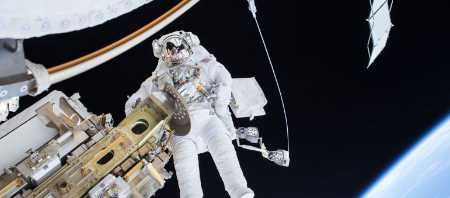Space science, a field encompassing the exploration and understanding of the cosmos, plays a crucial role in national security and defense. As nations increasingly rely on space-based assets for communication, reconnaissance, and surveillance, protecting these assets becomes paramount. In this article, we will delve into the significant role of space science in national security and defense, exploring how space technologies and research contribute to safeguarding nations and ensuring their defense capabilities.
Satellite Communication and Intelligence Gathering:
Satellites have revolutionized communication and intelligence gathering capabilities, enabling real-time data transmission and imagery collection. Space science plays a vital role in developing and deploying advanced satellite systems for national security purposes. Satellites provide secure communication channels for military operations, diplomatic communications, and disaster response. Additionally, satellite imagery and remote sensing technologies allow for detailed intelligence gathering, monitoring of potential threats, and supporting decision-making processes in defense and security operations.
Space-Based Surveillance and Reconnaissance:
Space science enables the development of sophisticated surveillance and reconnaissance systems that provide critical information for national security and defense. Satellites equipped with high-resolution sensors and advanced imaging technologies offer unparalleled capabilities for monitoring borders, identifying potential threats, tracking movements of military assets, and assessing potential security risks. The data collected from space-based surveillance and reconnaissance systems aid in situational awareness, threat assessment, and strategic planning for defense operations.
Navigation and Positioning Systems:
Global Navigation Satellite Systems (GNSS), such as the Global Positioning System (GPS), have become essential tools for military operations, logistics, and defense applications. Space science plays a pivotal role in the development and maintenance of these satellite-based navigation systems, enabling precise positioning, navigation, and timing information for troops, aircraft, naval vessels, and land-based vehicles. Accurate GNSS data enhances operational effectiveness, coordination, and situational awareness, facilitating successful defense operations.
Space-Based Early Warning Systems:
Space science contributes to the development of space-based early warning systems, which are critical for national security and defense. These systems include satellites equipped with sensors to detect and track missile launches, nuclear activities, and other potential threats. Space-based early warning systems provide valuable time for appropriate response and countermeasures, offering nations a significant advantage in strategic decision-making and ensuring the safety and security of their territories.
Space Situational Awareness and Space Traffic Management:
The increasing congestion of space due to satellite deployments and space debris poses challenges for national security and defense. Space science helps in developing space situational awareness (SSA) capabilities to monitor and track objects in space, including active satellites, debris, and potential threats. By understanding the space environment, nations can mitigate the risks of collisions, protect their own space assets, and contribute to the responsible and sustainable use of outer space.
Research and Development for Advanced Defense Technologies:
Space science serves as a catalyst for research and development of advanced technologies that have direct applications in national security and defense. Innovations in space propulsion systems, materials science, robotics, and miniaturized electronics have found practical use in defense systems. Space science provides a platform for testing and validating these technologies, leading to advancements in missile defense, aerospace systems, surveillance technologies, and other critical defense capabilities.
International Collaboration and Diplomacy:
Space science fosters international collaboration and cooperation in the realm of national security and defense. Countries often join forces to build and operate space-based assets, share data, and coordinate efforts to enhance global security. Space science initiatives can serve as avenues for diplomatic engagement, promoting trust-building measures, and ensuring transparency among nations. Collaboration in space-based defense systems and research facilitates peacekeeping efforts and promotes stability on a global scale.




Leave Comment